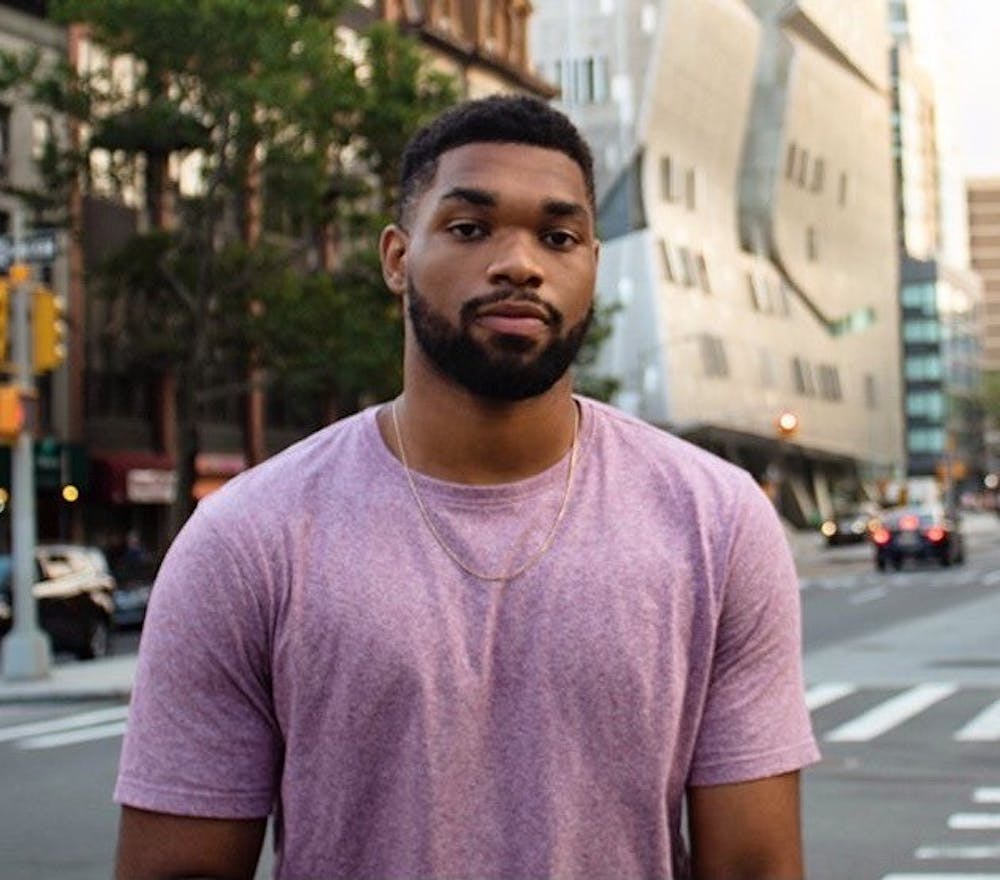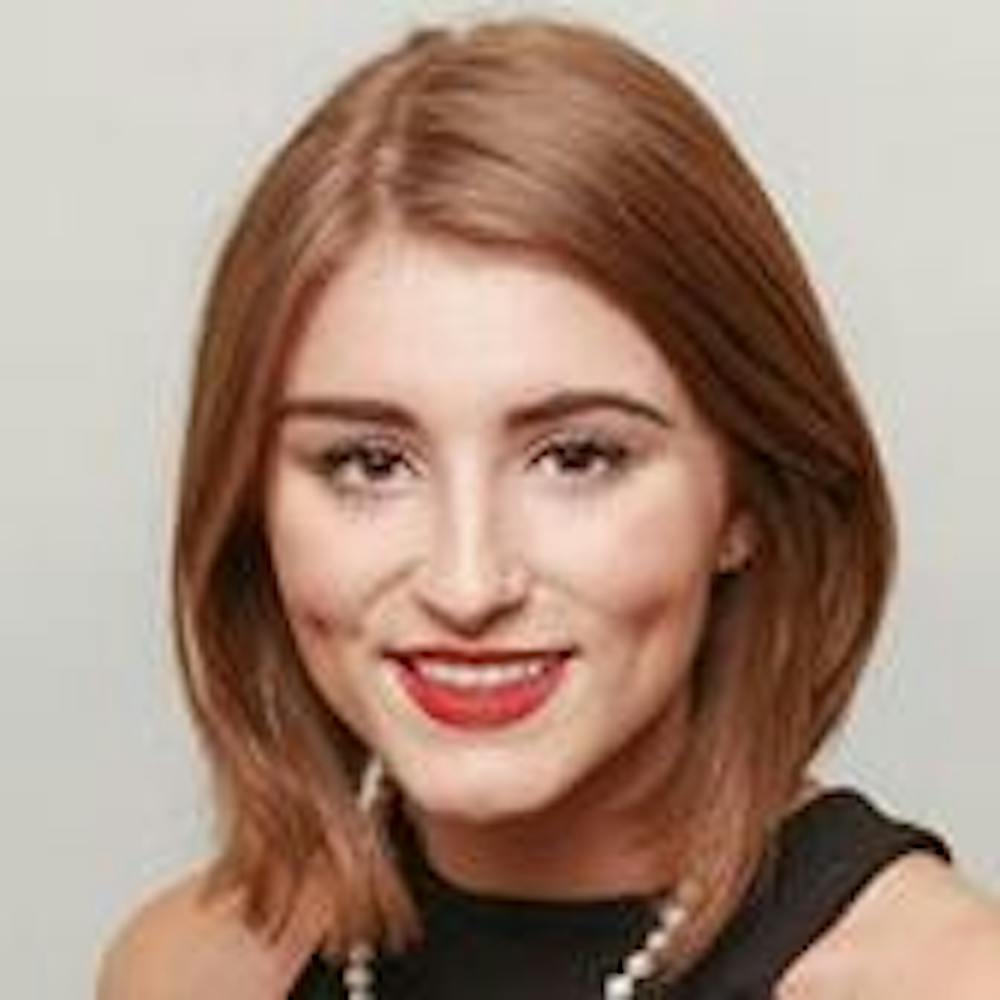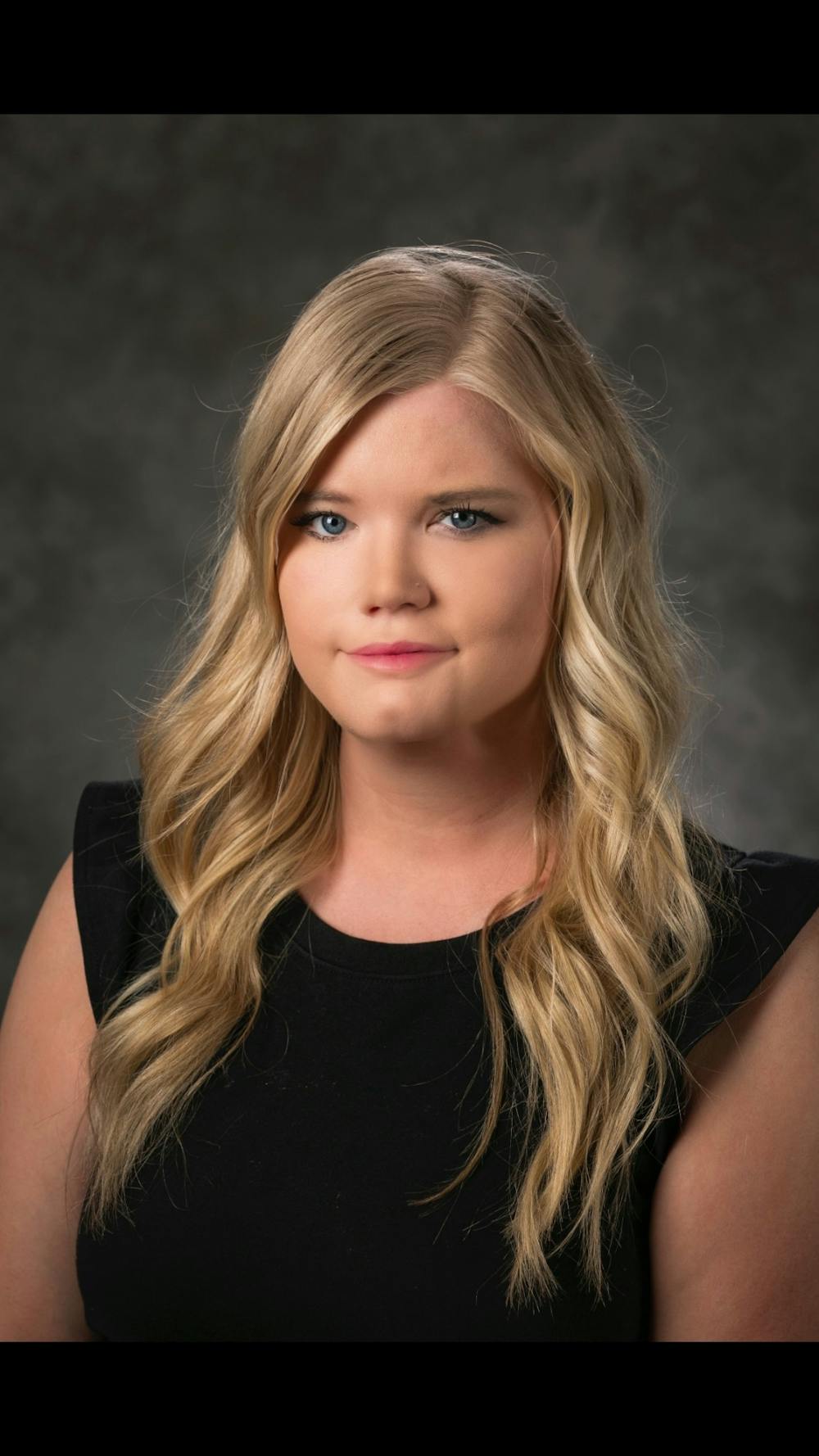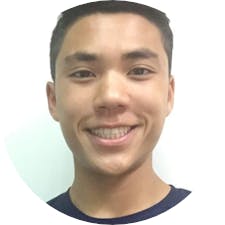To be in the first class of Rubenstein Scholars was to embrace contradiction.
It was saying yes to a full-ride scholarship, but also to a struggle to belong. It was receiving a letter in the mail that was so preposterous you wondered if it was a scam, thinking scholarships from big-name colleges went to students from preparatory schools, not to people like you.
It was traveling to places you never thought you’d go and making the best memories with friends. It was being sent home because of the coronavirus and having to juggle school and work and family. It was graduating in a pandemic. It was knowing you were a merit scholar but feeling at times like a financial aid recipient.
“You kind of feel like you walk around with a mark on yourself,” said Andie Marie Adkins, Trinity ‘20, a member of that first class.
The David M. Rubenstein Scholars Program is a merit-based scholarship for first-generation, low-income students. The first 30 Rubenstein Scholars graduated in May, after four years inhabiting a University where many students come from families with six-figure incomes.
‘Somebody to go back to’
When Cameron King, Trinity ‘20, received his scholarship letter in 2016, his mother warned him it could be a scam.
There was no separate application for what was then called the Washington Duke Scholars program, and King had already received an acceptance letter from Duke announcing his financial aid package.
“It was funny because it was the first year that we started, so I really had no idea what it was,” King said.

When Cameron King, Trinity '20, received his scholarship letter, his mother warned him it might be a scam. "It was funny because it was the first year that we started, so I really had no idea what it was," King said. Photo courtesy of Cameron King.
Like King, Adkins was caught off guard by the single-page letter that arrived in her inbox one day in May. “Congratulations, you’re a Washington Duke scholar,” it read. “Call this number if you have questions.”
It was “surreal,” she said, chuckling. “I remember thinking it wasn’t real at all.”
The first Rubenstein Scholars entered a University that was overwhelmingly wealthy. In 2017, The New York Times reported that nearly 70% of Duke’s student body came from the top 20% income bracket, while only about 4% of students were from the bottom 20% income bracket. The median family income was $186,700, which was fifth-highest among Ivy League schools and other elite colleges.
According to class profiles released by the University, first-generation students made up 12% of the Class of 2021, 9% of the Class of 2022 and 8% of Class of 2023.
In 2016, the University created the Washington Duke Scholars program to “attract more first-generation, limited-income students and add to the socio-economic diversity of the student body,” Sachelle Ford, the director of the Rubenstein Scholars and of Duke LIFE (Low-Income, First-generation Engagement) wrote in an email to The Chronicle.
According to Ford, the program took on its current name when David Rubenstein—Trinity ‘70 and a first-generation, low-income Duke student—donated $20 million to the program in 2017. Rubenstein is the billionaire founder and co-executive chairman of The Carlyle Group, a private equity company.
The Rubenstein Scholarship covers tuition, room and board and any mandatory University fees. It also provides an enrichment fund, mentoring, two summer terms of study abroad or summer school and professional development.
Before arriving on campus, King, Adkins and the other Rubenstein Scholars attended a pre-orientation summer program on East Campus designed to prepare them for college life. They took classes together, learned writing and statistics, attended information sessions at various University offices and received new laptops.
The session wasn’t all academics: On top of living together in dorms, the scholars also bonded through bowling, trips to amusement parks and time at the beach.
“When you come to college, a lot of Duke students have an understanding of what college is. It’s kind of like the next level of high school. But for me specifically, and I know first-gen people in general, you really have no idea what you’re walking into,” Adkins said. “I think the purpose of the summer program is to give you a month before school starts to get your feet wet.”
“But,” she added, “I think nothing can really prepare you for being at a school like Duke.”
Kayla Lynn Hardy, Trinity ‘20, said many of the scholars who were roommates during the summer session continued to room together throughout their four years at Duke.
“I think my first year I felt very isolated. But because we had that first cohort of people, you always had somebody to go back to,” Adkins said. “You felt out of place, but you also felt like there was at least someone else there to understand you.”
'Good enough to be here'
Feeling out of place was a recurring theme in the conversations I had with Rubenstein Scholars.
Kelby Welsh, Trinity ‘20, remembers that during the pre-orientation program the director of the scholarship told them: “You’re not here because this is a scholarship for people who have these socioeconomic differences.”
“She was like ‘You guys are the cream of the crop. We picked you because of your high merits, not just because of your low economic status,’” Welsh said.
But for some Rubenstein Scholars, this message wasn’t always easy to internalize—especially when, for Adkins, it seemed like other scholarship programs were receiving more resources from the University.
“When it came to other scholarships, we definitely weren’t treated the same way,” Adkins said. “That kind of affected the way I approached things at Duke.”
Adkins noted that the Rubenstein program didn’t have its own space in the Office of Undergraduate Scholars and Fellows until 2018.
“Until junior year, we were still considered financial aid,” Adkins said. “It wasn’t until last semester that we actually had a financial aid advisor specifically for a scholarship, where before it was like we were just treated like everybody else’s financial aid system. If we ever had a question about financial aid, we couldn’t go to anybody in the scholarship. They said, ‘Oh, you’ve got to call your financial aid officer.’ It was small things like that that kind of let you know we weren’t considered on the same level.”
Karen Weber, executive director of the Office of University Scholars and Fellows, wrote in an email that “the Rubenstein team has continually worked to enhance its programming and expand opportunities for its scholars.”
“To strengthen these efforts, the Rubenstein program joined the Office of University Scholars and Fellows two years ago,” Weber wrote. “As members of the OUSF community, the Rubenstein Scholars have full access to programming offered by OUSF, and the Rubenstein staff members' offices are now located in Smith Warehouse with the other OUSF offices.”
That uncomfortable feeling extended to the Rubenstein Scholars’ everyday experiences.
Hardy said that for a long time she struggled with “feeling really inferior.”
For most of high school, she hadn’t planned on going to a four-year college. When she eventually decided on Duke, she said that teachers and classmates from her high school told her the acceptance was due to affirmative action.
During her first year, Hardy almost dropped out of her pre-med program because she was worried she wasn’t smart enough or wouldn’t do well in her classes. It wasn’t until her sophomore year that she began to find footing at the University.
“I just spent a really long time trying to prove to myself, to make myself feel like I was good enough to be here,” Hardy said.

Kayla Lynn Hardy, Trinity '20, said that for a long time she struggled with "feeling really inferior" at Duke. Photo courtesy of Kayla Lynn Hardy.
During her first two years, Hardy took paramedic classes at a community college that was a two-hour drive away. After doing over 500 clinical hours, she became a paramedic. She also graduated with more than three semesters of extra classes, double majored in cultural anthropology and African & African American studies, and won a 2020 Faculty Scholars Award.
Much of Rubenstein programming is oriented toward helping scholars adjust to the challenge of feeling out of place. The programming includes one-on-one mentoring with faculty and other students.
“Of course, the scholarship has helped lift a weight off of my shoulders by assisting with the financial burden of attending college, but the scholarship has also provided me with more than just financial assistance—it has provided me with a network of individuals I can depend on,” Michael Ong, Trinity ‘20, wrote in an email to The Chronicle.
Welsh hadn’t studied chemistry or math when she entered Duke, but she said the scholarship program provided her with the support she needed.
“Whenever I told them I was struggling in chemistry, they helped me find somebody. They were there for you, and they helped you talk to the teacher, send emails, go to office hours and navigate the whole ‘how do you ask for help when you’re struggling,’” Welsh said.
‘A world they had yet to meet’
Sujeiry Jimenez’s favorite memory from her time at Duke was the 2020 Duke vs. University of North Carolina at Chapel Hill men’s basketball game. Krzyzewskiville was filled with students in blue and white. Paint was everywhere. People were taking pictures, running around and dancing. The stadium was “electric,” she recalled in an email.
“Little did I know that this event would be the last time I was on Duke’s campus as a student,” she wrote.
On March 10, the University announced the suspension of in-person classes, pushing many students off campus and scattering the 30 Rubenstein Scholars across the country.
Like many other seniors, the Rubenstein Scholars had to grapple with the abrupt end to the semester. But they also had to reckon with the ways the glare of the Zoom screen exposed the inequalities they had once been able to hide.
“I think you’ll see even in the Zoom background, some people are out on the beach or on the third floor of the house and I’m here in my bedroom in my house at home, just like my one white wall,” Welsh said.
Welsh had returned to her home in Adair, Okla. Since her mom was an essential worker with the Cherokee Nation, Welsh had to balance taking classes and taking care of her siblings.

Kelby Welsh, Trinity '20, returned to her home in Adair, Okla. during the pandemic. She had to balance taking classes and taking care of her siblings. Photo courtesy of Kelby Welsh.
Virtual graduation ceremonies also revealed stark differences between her and her classmates. Normally, everyone would wear the same cap and gown and walk down the same aisle, she said. But now she watched as people printed out large banners and hosted drive-by parties.
In Adair, it was harder to celebrate since she was focused on caring for her family. Plus, “nobody around here even graduates college or goes to college,” she said.
When classes moved online, Hardy worked full-time, 90 hours a week, as a paramedic. I called her one evening in early May, on what would have been Commencement weekend in a normal year.
“Today’s graduation day, and I’m working. I just worked on a gunshot wound and took an old lady to her dialysis appointment, but I should be graduating… I was the first person in my family to go to college… I was really excited for them to see me walk,” she said.
Other Rubenstein Scholars expressed similar feelings of loss.
Jimenez recalled how she missed the rituals of senior spring: the final March Madness, the final last day of classes, the final midnight Pitchforks runs. This is normally a time for seniors to prepare themselves to let go, to have closure with friends, faculty and mentors, she wrote in an email.
“We didn’t get that,” Jimenez wrote.
Like Hardy, Jimenez also felt the pain of not having a traditional graduation ceremony.
“I am the first person in my family to graduate from college, and we are not able to celebrate. It hurts,” she wrote. “I wish I could have shown them where I have spent my past four years, have them meet my friends and mentors. Welcome them to a world they had yet to meet.”
Get The Chronicle straight to your inbox
Signup for our weekly newsletter. Cancel at any time.

Chris Kuo is a Trinity senior and a staff reporter for The Chronicle's 118th volume. He was previously enterprise editor for Volume 117.

